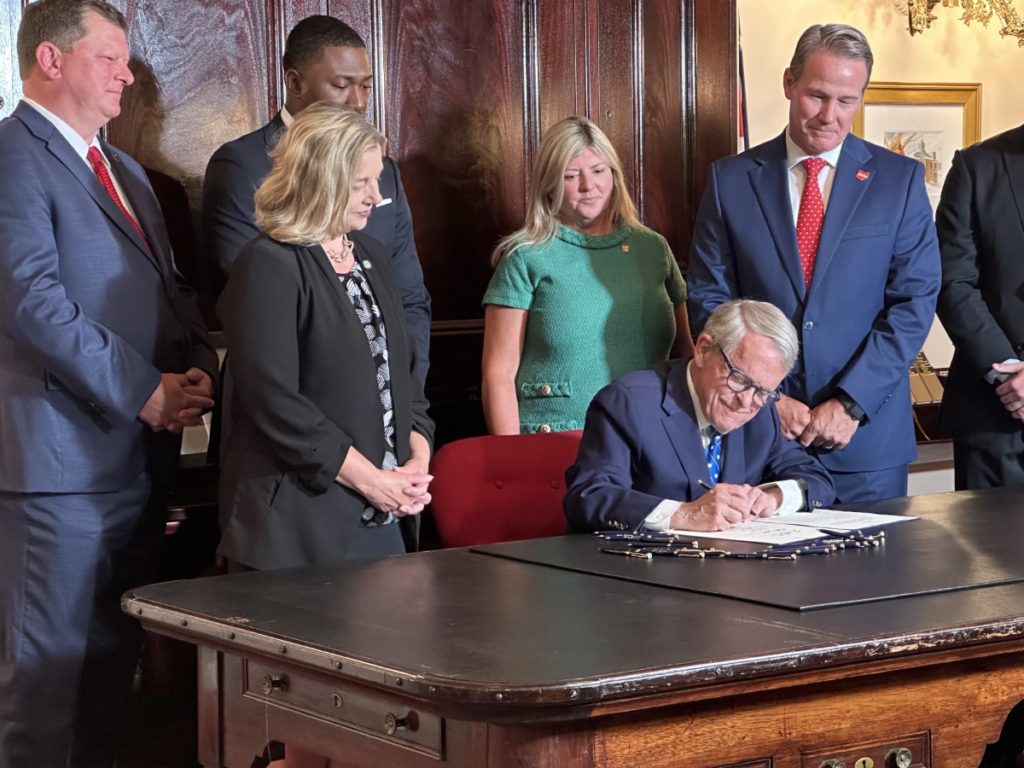Introduction to the Ohio Observation Laws:
Ohio observation laws deal with how evidence is gathered and used during investigations and trials. These laws focus on ensuring fairness and protecting people’s rights. In Ohio, the observation law often involves rules around surveillance, eyewitness testimony, and evidence collection. Whether it’s police officers, private investigators, or everyday citizens, understanding the rules about observation and recording is essential.
For example, Ohio allows individuals to record conversations if they are part of the conversation. This is called a “one-party consent” law. It means that you can record a phone call or a meeting as long as you are involved, even if the other person doesn’t know. However, secretly recording conversations you are not part of is illegal.
This law protects privacy while still allowing people to gather evidence for personal or legal purposes.Another part of the observation law relates to video surveillance. In Ohio, it’s generally legal to record video in public places where there is no expectation of privacy, such as streets or parks. However, recording people in private spaces, like bathrooms or bedrooms, is strictly prohibited. These rules ensure a balance between security and privacy rights.Ohio’s observation laws also govern how evidence can be used in court.
For instance, evidence collected illegally, such as through unauthorized surveillance or wiretapping, might not be admissible. This is to prevent unfair practices and protect individuals from violations of their rights. Eyewitness testimonies are another important aspect. Ohio courts require witnesses to provide reliable and accurate accounts to ensure justice is served.
Understanding Ohio observation laws can help you navigate situations where observation, recording, or evidence collection is necessary. Whether it’s for personal protection, business reasons, or legal cases, knowing the law can prevent you from unintentionally breaking it while ensuring your rights are safeguarded. Always consult legal professionals for specific advice tailored to your situation.

Advantages of Ohio Observation Law:
Ohio’s observation laws offer several benefits to individuals, law enforcement, and the legal system. These laws are designed to strike a balance between privacy, accountability, and the proper collection of evidence. Below are some of the key benefits:
1. Protects Privacy Rights:
The laws safeguard individuals from unwarranted surveillance and recording in private settings. For example, it is illegal to record someone in their home or other private spaces without their consent. This ensures people feel safe and secure in their private lives.
2. Ensures Fairness in Legal Proceedings:
Ohio observation laws prevent the use of illegally obtained evidence in court. This protects individuals from being wrongfully accused or convicted based on evidence gathered through improper means, such as unauthorized wiretapping or hidden cameras.
3. Encourages Transparency:
By allowing one-party consent for recordings, the law gives individuals the ability to protect themselves in disputes. Whether it’s a business deal or a personal conflict, having the option to legally record a conversation can provide valuable evidence if needed.
4. Supports Law Enforcement Efficiency:
These laws provide clear guidelines for police and investigators on how to collect evidence legally. This reduces the likelihood of procedural errors that could compromise a case and ensures investigations are conducted ethically and effectively.
5. Enhances Public Safety:
Legal video surveillance in public spaces can deter criminal activity and provide evidence for solving crimes. For example, security cameras in stores or on streets help identify suspects while respecting the boundaries of privacy.
6. Promotes Accountability:
By regulating surveillance and evidence collection, these laws hold everyone accountable, including law enforcement and private citizens. This helps to maintain trust between the public and authorities.
7. Provides Legal Clarity:
Ohio observation laws give clear guidelines on what is permissible and what is not when it comes to recording and surveillance. This reduces confusion and ensures individuals and organizations can act within the boundaries of the law.
Understanding and following Ohio observation laws not only protects your rights but also ensures fairness and accountability in various personal, professional, and legal scenarios.
Disadvantages of Ohio Observation Law:
While Ohio’s observation laws aim to protect privacy and ensure fairness, they come with certain limitations and challenges. Below are some of the potential disadvantages:
1. Limited Scope of Recording:
The one-party consent rule can lead to disputes. While it allows individuals to record conversations they are part of, it may create mistrust if others feel recorded without their knowledge. This can strain personal or professional relationships.
2. Ambiguity in Public vs. Private Spaces:
The distinction between public and private spaces can sometimes be unclear. For instance, recording someone in a semi-private area, like a shared workspace or a parking lot, might lead to legal gray areas and disputes over privacy violations.
3. Illegally Obtained Evidence is Inadmissible:
Although protecting rights is important, strict rules against the use of illegally obtained evidence can sometimes hinder justice. If critical evidence is gathered improperly, even unintentionally, it may be excluded from a trial, potentially allowing guilty parties to go free.
4. Potential for Misuse:
The laws can be exploited by individuals recording conversations with malicious intent. For instance, someone might manipulate recorded evidence or use it to blackmail others. Such actions can harm reputations and personal lives.
5. Increased Surveillance in Public Spaces:
While legal, constant video surveillance in public areas can create a sense of being watched, which may feel intrusive. Some individuals may view this as a violation of their right to move freely without being constantly monitored.
6. Challenges for Law Enforcement:
Strict regulations on evidence collection can make law enforcement’s job more difficult. Officers must follow rigorous procedures to ensure evidence is admissible, which can slow down investigations or limit their ability to act quickly in urgent situations.
7. Technological Complexities:
Advancements in technology, such as smartphones and surveillance devices, make it easier to record and observe others. However, these tools can lead to unintentional violations of the law, especially for individuals who are unaware of specific legal boundaries.
8. High Legal Costs for Disputes:
Disagreements over whether observation or recording was legal can lead to costly legal battles. For example, determining if someone violated privacy laws often requires legal intervention, which can be expensive and time-consuming.
Ohio observation laws provide a framework for fairness and privacy, but they can also pose challenges. Awareness and understanding of these laws are essential to navigating their complexities effectively.
Here are some common questions and answers related to Ohio observation laws:
Q1: What is Ohio’s “one-party consent” law?
A: Ohio follows a one-party consent law, which means you can legally record a conversation if you are part of it. You do not need the other person’s permission, but recording a conversation you are not part of is illegal.
Q2: Can I record someone in public without their consent in Ohio?
A: Yes, you can generally record someone in public spaces where there is no expectation of privacy, such as parks or streets. However, recording in private areas like bathrooms or dressing rooms is prohibited.
Q3: Is it legal to record a phone call in Ohio?
A: Yes, as long as you are one of the participants in the call, you can record it without informing the other person.
Q4: What happens if evidence is collected illegally in Ohio?
A: Illegally obtained evidence, such as recordings or surveillance gathered without proper consent, is typically not admissible in court. This is to ensure fairness and protect individual rights.
Q5: Can employers monitor employees in Ohio?
A: Employers can monitor employees in the workplace, but they must follow legal guidelines. For example, video surveillance is allowed in common areas but not in private spaces like restrooms or locker rooms.
Q6: Are hidden cameras allowed in Ohio?
A: Hidden cameras are legal in public or common areas where there is no expectation of privacy. However, placing hidden cameras in private spaces without consent is illegal.
Q7: Can I record someone for personal protection in Ohio?
A: Yes, you can record a conversation or interaction for personal protection as long as you are part of the conversation. This can be useful in cases of disputes or harassment.-
Q8: What should I do if someone illegally records me in Ohio?
A: If you believe someone has illegally recorded you, you can report the incident to law enforcement. You may also consult an attorney to explore civil legal action for privacy violations.
Q9: Can video surveillance be used as evidence in Ohio courts?
A: Yes, video surveillance can be used as evidence if it was obtained legally and complies with privacy laws. Illegally obtained footage may be excluded from court proceedings.
Q10: How can I ensure I’m following Ohio observation laws?
A: To stay compliant, always record conversations you are part of, avoid recording in private spaces without consent, and consult legal professionals for advice if you are unsure about specific situations.
Conclusion:
Ohio observation laws aim to balance privacy, accountability, and the proper collection of evidence. They empower individuals to protect themselves through legal recording, ensure fairness in legal proceedings, and promote transparency and public safety. However, these laws also come with challenges, such as potential misuse, legal gray areas, and restrictions that may complicate justice or personal actions.
Understanding and following these laws is crucial for navigating personal, professional, and legal situations effectively. By respecting privacy and adhering to the rules, individuals can protect their rights while avoiding legal complications. Consulting a legal expert is always a wise step when dealing with complex observation or recording scenarios.
you must watch 👁️👁️ this article 👇👇👇
Japanese Love Story: World of “Love” in Japan





